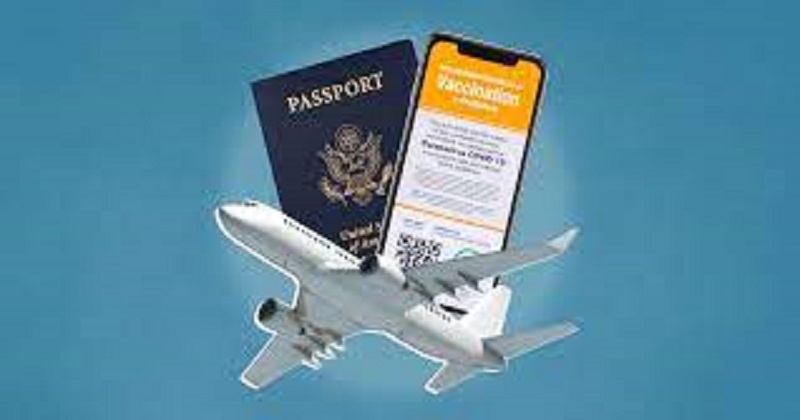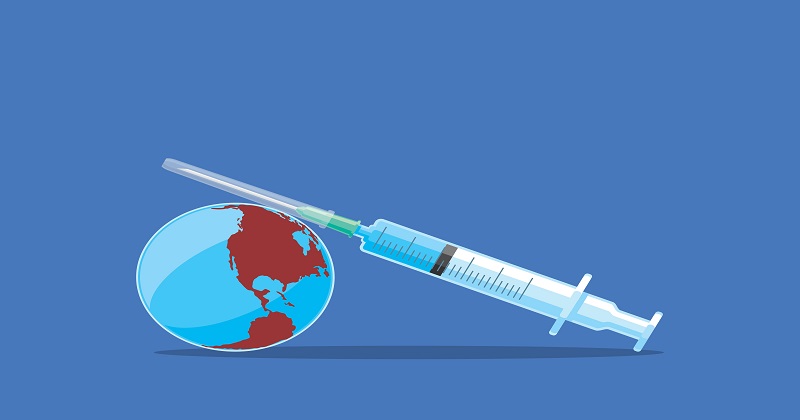
By the resurgence of global travel, people are discovering that their selection of vaccines could decide where they’re permitted to travel. Now, the European Union is preparing to let Americans injected with shots recommended by their drug firm to start over the summer, European Commission president Ursula von der Leyen proposed in an interview. This suggests that those who have shots by Chinese producers like Sinovac Biotech Ltd. and Sinopharm Group Co. Ltd. are expected to be banned from entry for the foreseeable destiny, with severe outcomes for global business activity and the restoration of international tourism.
As vaccination trials ramp up around the world, a disorder of endorsements over countries and territories is setting the groundwork for a global vaccine bifurcation, where the shot you get could decide which nations you can enter and work in. For Chinese citizens who venture abroad frequently, and western nationals desiring to seek business opportunities in the world’s second-largest economy, a dilemma is surfacing about which shot to choose for. China so far identifies only Chinese-made shots, and its vaccines are not permitted in the US or Western Europe.

Hong Kong citizen Marie Cheung travels to mainland China regularly for her work with an electric vehicle company, a system that’s been disrupted by lengthy mandated quarantine stays since the pandemic started. Of the two vaccine options obtainable in the city one from Sinovac and another developed by Pfizer Inc. and BioNTech SE Cheung plan to sign up for Sinovac for a more relaxed drive in and out of the mainland. Meanwhile, her British husband will go for the Pfizer-BioNTech shot, she says to boost his chances of visiting family in the UK.“For people who need to work in or return to the mainland, the Chinese vaccine is the only option for them,” Cheung said. “Westerners will only choose the vaccine recognized by their home country.”
For millions of people globally who can’t decide which vaccines they get, the danger of more places becoming careful about which shots they acknowledge, particularly provided the vaccines’ diverging efficiency rates, generate the possibility that even fully vaccinated, people’s travel could still be limited with outcomes for international business activity and the tourism industry.“A global division of peoples based around vaccine adoption will only exacerbate and continue the economic and political effects of the pandemic,” said Nicholas Thomas, associate professor in health security at the City University of Hong Kong. “It will risk the world being divided into vaccine silos based on vaccine nationalism rather than medical necessity.”
Many nations have closed their boundaries amid the pandemic, some permitting access only to citizens, with weeks-long quarantines after arrival. While vaccines are viewed as the means to eliminate those entry restrictions, significant skepticism persists over how, or if, countries will alter the at least 11 shots available globally. Governments from China to Europe are considering vaccine passports easily available and valid certifications stating that an individual has been inoculated but it’s unclear if nations will seek universal recognition of all shots, or be particular on which they opt to recognize, especially with the growth of virus variants and questions over whether the prevailing crop of vaccines is as efficient against them.
China lifted visa application conditions for foreigners who had been injected with Chinese shots in March, including the capacity to leap Covid tests or fill out travel declaration forms. The country’s homegrown vaccines are only available in some nations, like Brazil, Pakistan, and Serbia. But in a warning that Beijing may be aware of the economic costs of being careful on vaccines, the Chinese embassy in Washington said this week that tourists who had taken several western shots could still enter the nation if they were going from Dallas in Texas. State media has shown that the Pfizer-BioNTech shot is likely to be approved mid-year.
“We do think that it’s important to get a very high percentage of the community vaccinated and the best way to do that is to offer choice,” said Ker Gibbs, president of the American Chamber of Commerce in Shanghai. As a key market and source of business for companies around the world, China’s border restrictions — among the world’s strictest — have “had a major impact on our ability to conduct business,” he said.
“Just speaking with our members, mobility is a high priority for us both in terms of allowing our executives to come in and out of China, but also to have their dependents travel back to China, Gibbs said. “That’s been a big problem. China is not the only country that’s limiting entry to people with certain inoculations. Iceland now excludes Chinese and Russian vaccines from the record of those it approves for access. The question of vaccine recognition is a key one for tourism-dependent countries, with the 9 trillion dollars global travel industry adequately paralyzed since the pandemic started. China’s access to this problem may influence their decision-making, as Chinese tourists have been among the biggest groups of foreign visitors to travel hot spots in Southeast Asia, Australia, and New Zealand and capitals as far away as Paris before the pandemic.
There were 155 million outbound tourists in 2019 spending more than 133 billion dollars abroad, according to the China Tourism Academy, a government considers tank and subsidiary of the Ministry of Culture and Tourism. While Indonesia, home to Bali, and Thailand have approved and is administering Chinese shots, New Zealand and Australia which have seen their connections with China deteriorate the past year over the virus and trade do not.
Read more; ‘Nomadland’ creates history in Oscars 2021;Chloé Zhao became the first woman of color
Katy Niu, a 26-year-old Chinese citizen, is a skiing enthusiast and regular traveler living in Beijing. It’s unclear whether she’ll be reverting to international grades like those in Japan’s Hokkaido anytime soon. Before the pandemic, she managed to travel internationally at least three times a year, from shopping on Paris’s Champs Elysées to relaxing on a Southeast Asian beach. Niu hasn’t received a vaccine yet, saying she didn’t feel any urgency since she’s not currently able to travel and doesn’t see it opening up shortly.“If other countries don’t recognize the Chinese vaccine, does that mean vaccination is not going to make a difference?” she said. “We are not offered a western vaccine anyways we don’t have a choice.”

Post Your Comments